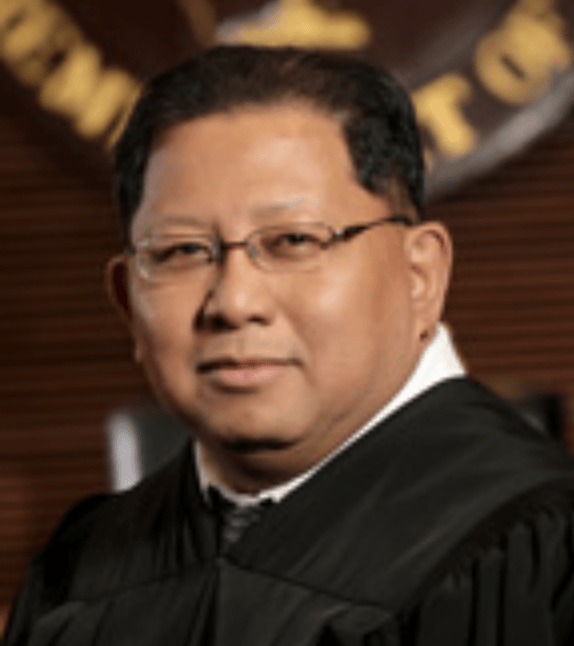
An apparent mistake by airport officials in the previous administration may cost the people of Guam hundreds of millions of dollars in damages to DFS Guam.
Judge Arthur Barcinas had to sort through 10 years of rumors, emails, documents, and the testimonies of the recollections of witnesses in the ongoing DFS lawsuit challenging the Guam airport’s selection of Lotte for a multimillion dollar annual concessionaire agreement before handing DFS a major win that may result in Guam’s ratepayers forking out multimillions to DFS. Buried in a lengthy decision is the judge’s statement that, according to the law, the airport in May of 2013 was barred “from proceeding with the Lotte contract, and GIAA’s further action on that contract was void.”
In a 43-page findings of fact and conclusions of law in DFS Guam v. The A.B. Won Pat International Airport Authority dated February 6, Guam. Mr. Barcinas ruled in favor of every claim DFS made that its case should proceed because the company timely filed all of its several protests made in 2013. The lawsuit is a procurement lawsuit where DFS seeks damages for their allegations their competitor Lotte Duty Free was unlawfully awarded the airport concessionaire contract in mid-2013. The allegations are based on accusations the airport authority under the administration of Eddie Calvo illegally awarded the contract to Lotte and negotiated an illegal contract that resulted in DFS losing its business at the airport.
Following Lotte’s assumption of the concessionaire, the company invested tens of millions of dollars in renovations that improved several of the airport’s facilities.
The legal history of this case has been a battle between droves of high-powered lawyers on each side that has managed to bring the case before the airport, the Office of Public Accountability, the Superior Court of Guam, the Supreme Court of Guam, then back to the trial court where the Supreme Court “determined a two-phase bench trial would be necessary,” according to Mr. Barcinas’ February 6 decision. The first phase was to determine whether DFS filed its three protests timely.
Mr. Barcinas, following the bench trial held last year, ruled DFS in fact timely filed all its protests.
Prior to this ruling, this case has accumulated volumes of discovery evidence on both sides, millions in legal fees, allegations of impropriety made against members of the airport board at the time of the procurement, and an FBI investigation into a party associated with one of the law firms in the case. The case has been so convoluted by legal maneuvers, public relations machinations, and whispers of political corruption that it carried on through the full 10-year term of the Lotte contract, which was to expire last year. The Guam Legislature had to intervene, passing a law allowing for the extension of the contract by three years.
The Barcinas decision contains eye-opening statements by the judge about the airport’s arguments against DFS’ claim that its protests were timely filed.
For instance, DFS claimed in its second protest filed May 29, 2013, that the airport and Lotte had negotiated development in the concession area that was outside of the scope of the procurement. The airport’s argument to that claim, according to the Barcinas decision, was that DFS filed its protest untimely because DFS “should have known the facts underlying the out-of-scope benefit claim prior to May 20, 2023,” according to Mr. Barcinas.
“The Court is not persuaded that DFS’s receipt of unsubstantiated rumor was sufficient to put it on notice that Lotte was proposing alleged out-of-scope benefits,” Mr. Barcinas wrote. “Instead, it was reasonable for DFS not to act on the ruors, and to wait until it had, or could have, concrete facts before protesting the issue.”
The judge, therefore, ruled this protest was timely filed.
Paragraph after paragraph in the decision, the court gave rise to facts showing DFS filed each of its three protests within the statutory timeline, and that the airport’s arguments were unreasonable and unsupported by the facts of the case.
“Having determined that all of DFS’s protests were timely filed, the Court must next determine whether these protests should be deemed ‘pre-award’ or ‘post-award,'” Mr. Barcinas wrote. “This is important for two interrelated reasons: for determining whether and when GIAA’s solicitation was automatically stayed, and for determining the remedies available to DFS.”
Mr. Barcinas cited a section of the procurement law [5 GCA § 5425(g)(1)-(3)], which states that if a timely protest is filed, “Guam shall not proceed further with the solicitation or with the award of the contract prior to final resolution of such protest, and any such further action is void[.]”
DFS filed its first protest on April 23, 2013. The airport board approved the contract on June 11, 2023. By that time, DFS had filed all three of its protests.
“Section 5425(g) therefore barred GIAA from proceeding with the Lotte contract, and GIAA’s further action on that contract was void,” Mr. Barcinas wrote. In effect, Mr. Barcinas wrote, the procurement issued in 2012 for airport concessionaire in unresolved and has been stayed since April 23, 2013 pending final resolution by the court.
Since the court determined that the “proposed award of a contract” was in violation of law pre-award stage, that 2013 contract award “shall be (a) cancelled or (b) revised to comply with the law,” he wrote. The court’s orders and conclusions now pave the way for the next part in the decade-long lawsuit that has now tilted in favor of DFS and may cost the public undetermined damages.
“As a result, a phase-two trial will be necessary to determine the merits,” Mr. Barcinas wrote, concluding, “The Court will issue further orders to provide guidance in preparation of the trial date. It is so ordered.”




1 Comments
Joe
02/13/2024 at 8:28 AM
We, the people, always end up footing the bills for their corrupted behavior just like the CNMI. I wonder whose wearing Rolex and carrying a Gucci bag.